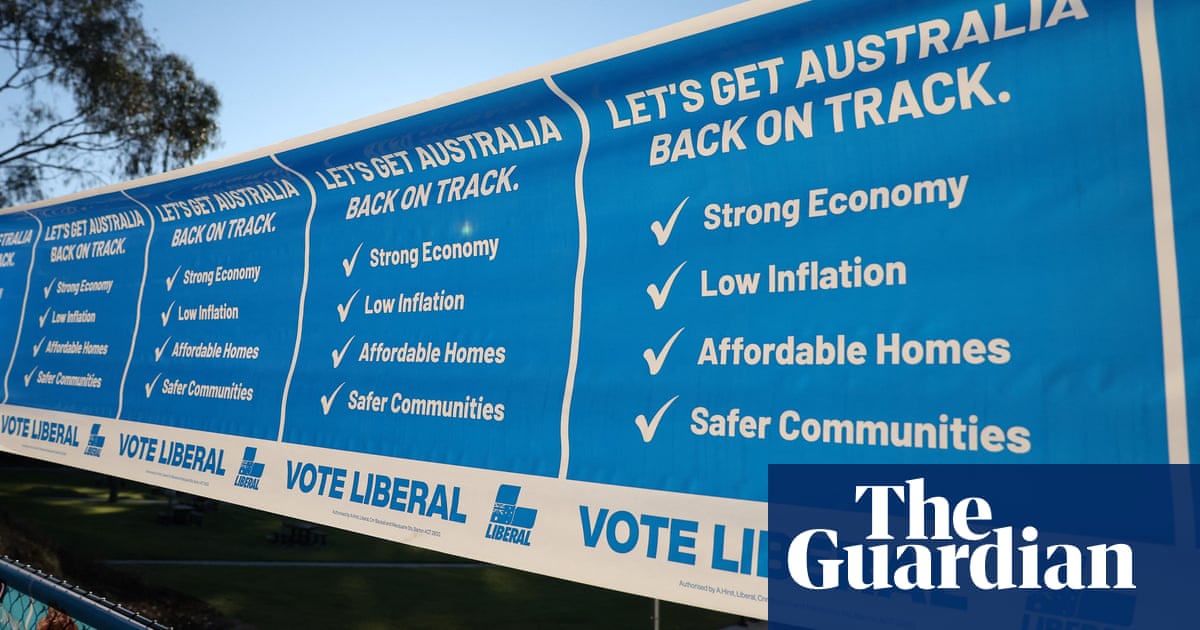The Liberal party has beendecimated in major cities– with just a handful of seats left in Melbourne, Brisbane and Sydney – and must overhaul its appeal in urban areas despite a Coalition party room now dominated by regional Liberals and the Nationals.
The Liberals have also beenwiped off the mapin Adelaide and Tasmania and lost another seat in Perth. Across major cities, the party has failed to win back any seats from the teal independent MPs, who strongly appeal to moderate Liberal voters.
In Melbourne, where the Coalition was widely tipped to win outer suburban seats, it has gone backwards. It is set to lose the seats of Menzies and Deakin with theLiberal partyalso suffering swings against it in La Trobe and Casey.
Keith Wolahan, who won Menzies in 2022 after winning pre-selection against the former Liberal minister Kevin Andrews, said it was clear the party had a major problem with voters in urban areas, where the majority of people live.
Wolahan, who was a member of the now further diminished moderate wing of the Liberal party, urged a rethink about the party’s identity and how it appeals to young professionals and women.
“We need to turn our mind to that like we have never done before,” Wolahan said. “We need to really dig deep and think about who we are and who we fight for and who makes up Australia.”
Sign up for the Afternoon Update: Election 2025 email newsletter
When asked how the party would do that, when regional Liberals and the Nationals will have a much greater share of theCoalitionparty room, Wolahan said the party must not ignore the feedback from urban voters.
So far,speculation about who should lead the Liberalsnames regional-based MPs – Dan Tehan in western Victoria, Sussan Ley in Albury-Wodonga, and Angus Taylor in Hume, which takes in the regional areas around Goulburn in New South Wales.
In south-east Queensland, the Liberals have bled seats to Labor. Dickson, Bonner and Petrie have turned red and Longman and Forde are also tipped to fall. Labor has gone from one female MP in Queensland – Annika Wells – to seven.
As the Liberal vote is decimated in big cities, the Nationals will have a much larger share of the Coalition party room. The so-called junior Coalition party may hold more seats than the Liberals in NSW and Victoria.
In Sydney, the Liberals lost Banks, held by the shadow foreign affairs minister, David Coleman, to Labor. It has also lost the seat of Hughes, held by another moderate Liberal Jenny Ware, to Labor. It may also lose Bradfield – previously a Liberal stronghold – to a teal independent, Nicolette Boele.
The Liberal senator Andrew Bragg, a moderate who has been re-elected, urged his party not to shift to the right in response to a decimation in the cities and to overhaul its strategy.
“We must offer an ambitious agenda and a centrist, inclusive social vision,” Bragg said. “Reclaiming enterprise and the centre is not a departure from our values – it is a return to them. The country is drifting and we remain Australia’s best chance for course correction and renewal.”
In Western Australia, the Liberals have won the seat of Moore in Perth. The seat was formerly held by Ian Goodenough, who ran as an independent against the Liberals after losing his preselection battle.
In Adelaide, the Liberals have lost the seat of Sturt for the first time in more than five decades. It now has no MPs in the South Australian capital.
At a Liberal party event on Saturday night, the former leader of the Liberal’s moderate wing, Simon Birmingham, warned that if this trend continued “there won’t be much of a party”.
“It’s critical that people see this as a chance to turn the corner and to look at how they better identify the Liberal ideology in a way that is relevant to modern audiences,” Brimingham said,as reported by the ABC.
